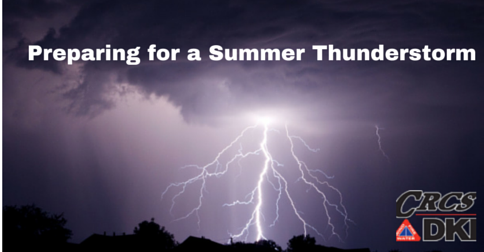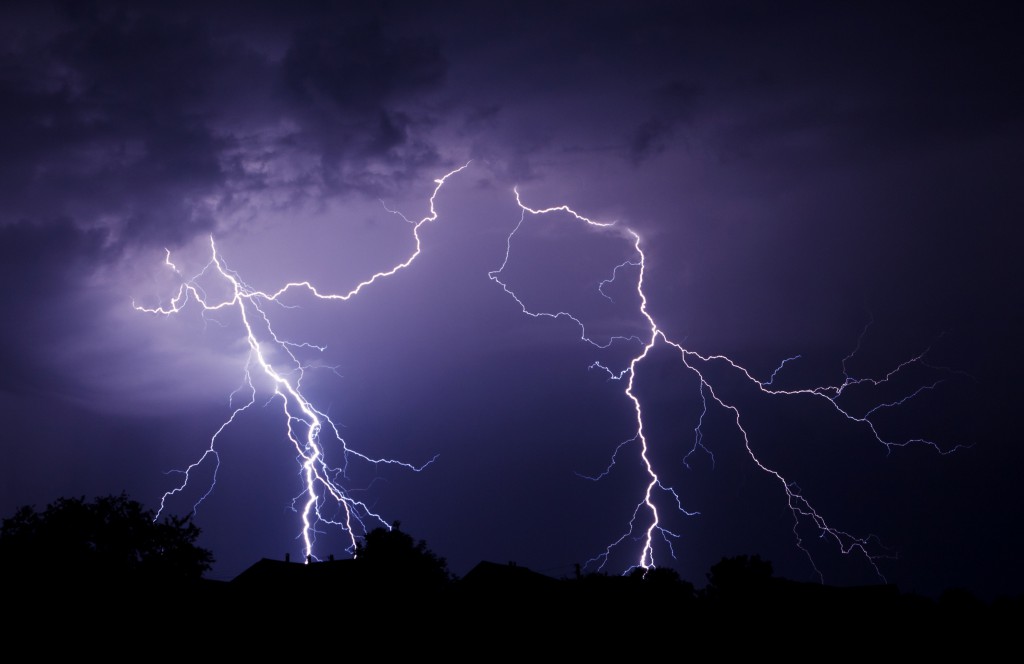Summer is time for outdoor adventures and fun, but these outings can quickly turn bad when summer thunderstorms hit. It is essential to be aware of these potential thunderstorms and be prepared. Be aware of severe weather, how it can affect you, and what you need to know to protect yourself during this season.
Before the Storm
Before going outside, be aware of the weather conditions. Don’t go out if extreme weather conditions are likely. In addition to making smart choices when traveling, it is important to prepare your home before extreme thunderstorms. Make these things a top priority beforehand:
- Make an emergency kit – include a kit for every member of your family. Don’t forget to include pets in this preparation. Emergency kits should have medical supplies, food, water, and extra clothing, enough to last at least for a few days.
- Clean up your trees – if there are any dead or rotting trees, or trees that have dead branches, remove these before the storm hits. These can cause injury or do damage to your home during the storm.
- Secure outdoor object – if you know a storm is coming, secure the outdoor objects of your home including outdoor furniture.
- Protect your home from the rain – even the rain of a storm can be damaging if your home isn’t prepared. Seal cracks, check gutters, and make changes necessary.
Make these preparations before the storm hits. Each of these will make storm damage cleanup much easier.
Avoiding Storm Damage
During the storm, it is best to stay indoors if possible. Follow these tips during the storm to better protect yourself:
- Keep battery powered flashlights on hand – storms can easily cut off the power, leaving you without light. Keep enough batteries and a flashlight on hand.
- Avoid electrical outlets – this is especially important if your electricity isn’t grounded.
- Plumbing fixtures and water conduct electricity – avoid using any type of plumbing. This means don’t shower, do dishes, or do laundry during the storm.
- Stay away from windows – stay in the inner rooms of your home.
- Do not lay down on concrete floors in your home.
After the storm, assess the damage that has been done. Depending on the severity and your own preparation, there may be damage needing professional help. Assess this and determine what is needed for your home.



Comments are closed here.